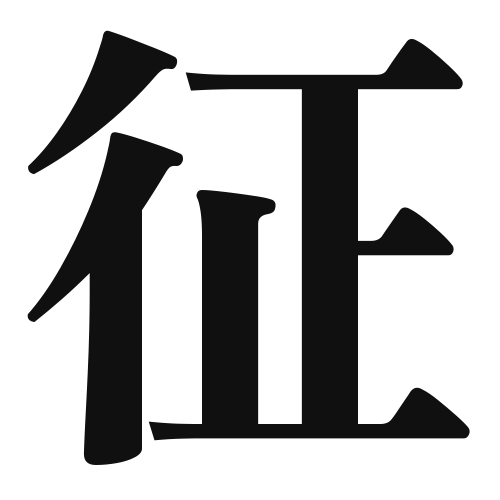1. Overview of Meaning
The kanji “征” (pronounced “sei” or “shō”) generally means “to conquer” or “to subjugate.” It conveys the idea of taking control or leading an expedition, often in a military context.
2. Formation and Radical
Formation of the Kanji: The kanji “征” is a compound character (会意文字) that combines elements to convey its meaning. It consists of the radical for “to go” (行) and the character for “to capture” (征), symbolizing the act of going forth to conquer.
Radical: The radical of “征” is 行 (to go), which is often associated with movement or action.
3. Examples of Usage
Common Words and Phrases: Some frequently used words that include “征” are “征服” (seifuku – to conquer) and “征戦” (seisen – military expedition).
Example Sentences in Daily Conversation:
- 彼は新しい市場を征服するために計画を立てています。 (He is making plans to conquer the new market.)
- 歴史的な征戦は国の運命を変えることがあります。 (Historical military expeditions can change the fate of a nation.)
4. Synonyms and Antonyms
Similar Kanji: A similar kanji is “制” (sei), which means “to control” or “to regulate.” While both involve a sense of authority, “征” emphasizes conquest, whereas “制” focuses on regulation.
Opposite Kanji: An antonym is “自由” (jiyū), meaning “freedom.” This contrasts with the idea of conquest or subjugation represented by “征.”
5. Cultural and Historical Background
Relation to Japanese Culture: The concept of “征” is deeply rooted in Japan’s history, particularly in the context of samurai culture and military campaigns. It reflects the values of leadership and bravery.
Proverbs and Idioms: One relevant proverb is “征服する者は、まず自分を征服せよ” (Conquerors must first conquer themselves), emphasizing the importance of self-discipline in leadership.
